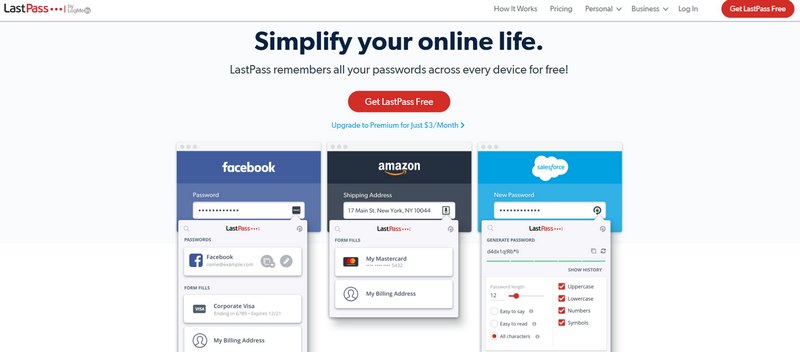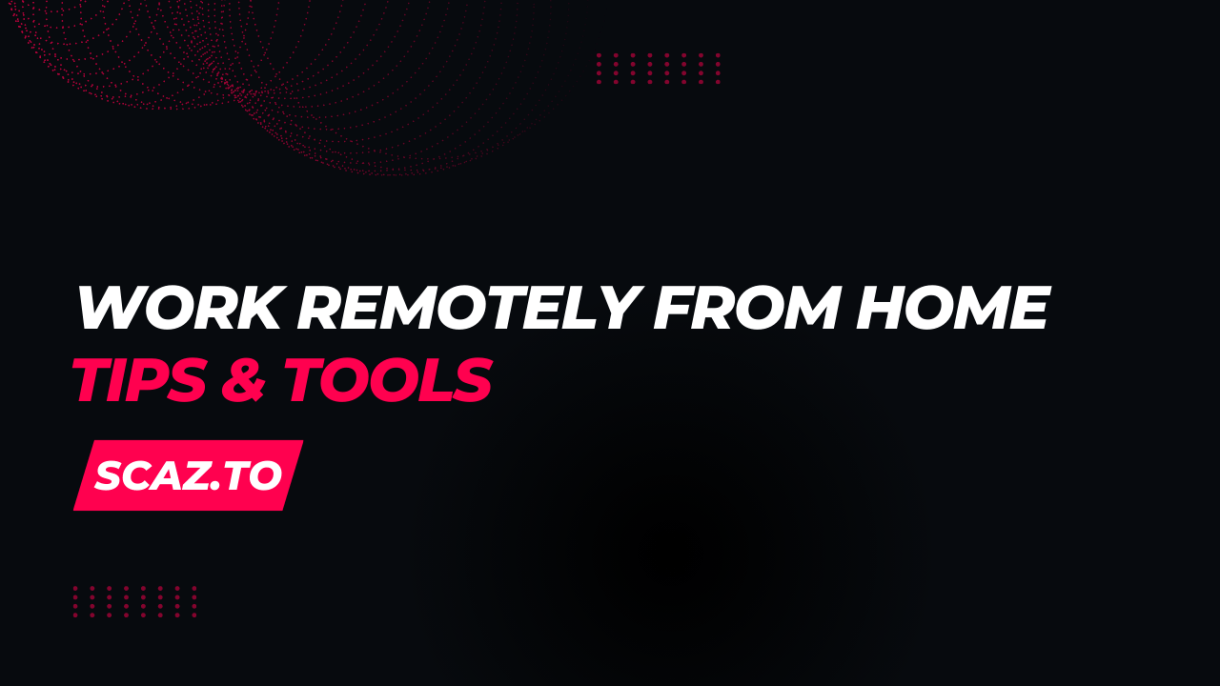Working on your laptop while lying on your bed sounds like a dream job. Doesn’t it?
Well, sure, it sounds like it, but in reality, working remotely from home is nothing like that.
It’s actually challenging. Especially for people who suddenly find themselves working from home due to a global epidemic such as the outbreak of the Coronavirus.
Whether you’re just starting out as a remote worker, thinking about freelancing or even forced to work from home, you’ll find many useful tips and hacks for surviving remote work in this guide.
I’ve worked in regular office jobs. And for more than seven years, I’ve worked from home as a full-time freelance writer. I think I’m qualified to offer some advice because I’ve been in both worlds.
How To Ask To Work Remotely

Many big brand companies like Apple, Microsoft, Twitter, and Facebook have asked their employees to work from home because of the risk of coronavirus.
But you don’t have to wait for an epidemic to do remote work. In fact, you can ask your boss to let you work from home at any time. While this may not work for some jobs and companies, in most cases, it won’t be hard to convince your boss to let you work from home. And for employees at startups, it’s especially easy.
Demonstrating your value to your boss is the key. Be exceptional at what you do. And you need to make it clear to your boss that you can’t be replaced. Then mention your plans to work remotely.
When you’re negotiating a deal with your boss, instead of making it about you, make sure you give him or her a list of reasons why it will be profitable and better for them.
You can get an idea from the following list of benefits.
Benefits Of Working Remotely

Aside from unannounced visits from family and friends, screaming children, household chores, and procrastination, there are actually many benefits to working from home.
- Increase work performance: People who work from home are 13% more productive, studies show. That’s because you’re not distracted by annoying coworkers or constant coffee breaks.
- Working more hours: Imagine saving dozens of hours each week that you’d otherwise spend sitting in traffic getting to and from work. And use that free time to take on a part-time freelance gig to make some extra cash on the side.
- Be more creative: Creative people come up with better ideas when they’re off the grid and in a peaceful environment. As Ryan Holiday says in his book Stillness Is The Key. At home, you’ll have more freedom for clear thinking and new ideas.
- Save money: You’ll be able to save a lot of money that would otherwise be spent on gas for the car, bus/train fares, expensive lunches/dinners and coffees, and buying gifts for weird co-workers you never knew existed.
- Spend time with your family: If you have a family, remote work can be a way for you to spend more time with them as well.
Tips For Working Remotely

Here are some tips on how to survive now that you’re totally sold on the great benefits of remote work.
Get Into A Routine
The most effective way to survive working from home and staying productive all day, every day, is to get into a routine.
You must find an appropriate place to work. Your bed or couch shouldn’t be the place for work. Put a table for your laptop somewhere quiet.
Then get up early. Get dressed, make your coffee, and sit down at your desk on time. And get to work.
Now, I know you’re probably thinking that sounds like going to a regular job. Well, even though you work remotely, it’s still a job. And if you want to keep your job, you need to act like a professional.
Sticking to routines will help you get things done at home properly. You’re still going to have a lot of housework to do, cooking to do, children/pets to care for, and other things to get done.
If you don’t have routines, you’ll never find time to work.
Create Checklists For Daily Tasks
Whether you’re married or living on your own, you probably have a lot of things to do around the house in addition to your regular work.
Use checklists to make it easier to manage all those tasks.
I usually make a checklist the day before of everything that I want to do on a particular day. So, for example, at night I write down all the tasks that I’m supposed to do the next day. When they’re done, I check them off one by one.
Don’t use a note-taking app to do that. Get a little notepad and draw check boxes and write down the tasks by hand. Writing with pen and paper is more effective.
Find Your Most Productive Time
I used to hate getting up early to work. Then I discovered that I’m actually a night owl. I do my best work at night. I’m most creative around midnight. Actually, I’m writing this at night.
Are you a morning person or a night person? Do you hate mornings or get tired early? Figuring out the right time to work is up to you.
By the way, work is going to be a challenge if you have a family and kids screaming in your face all the time.
Now you have to make a decision. You can either wake up super early and get some work done before the kids wake up. Or you can wait until they go to sleep and then go to work.
Have A Background Music Playlist
Putting on headphones and playing some music is a great way to get rid of the background noise. I’m so used to it now that I can’t work for too long without some kind of music playing.
I usually play music with no vocals in it. Hearing them is distracting. So I have a huge playlist of upbeat and retro synth-wave music that I jam to at work. You can find those tracks on YouTube.
But feel free to find whatever works.
Use A Custom Pomodoro Timer
A fairly popular way to work more productively is the Pomodoro technique. It simply forces you to work for 25 minutes straight and be rewarded with a five-minute break.
This has never worked very well for me because when I’m in my creative mode, I tend to work straight through for at least an hour. When I stop, I usually lose the creative energy.
I also use an extension for Chrome called Marinara. It lets you set repeatable timers. It helps you stay focused.
Best Tools For Remote Workers

There are a lot of different tools out there, both paid and free, that you can use to your advantage to make working remotely easier. These are just a few of my favorite tools that I use on a daily basis. By the way, all of these tools have free versions.
1. Bonsai

- Best For: Invoices, time tracking, proposals, and more
Bonsai is an all-in-one platform that comes bundled with all the kinds of tools that you need in one place. You can use it for invoicing, time tracking, project proposal creation, expense tracking, and more.
Instead of having to sign up for multiple sites and apps, Bonsai helps you manage all your work in one place.
2. Trello

- Best For: Managing multiple projects
Trello is a great way to keep track of your projects. It has a very simple interface. You can keep track of multiple projects at the same time. Trello works like a visual to-do list. You can create tasks and even assign them to other members of your team to complete. And you can complete the tasks as you progress through the projects.
3. Slack

- Best For: Quick communications (email alternative)
You’ll have a lot of quick conversations with your team and your boss. It won’t work to send an email every time you want to ask a question. Try Slack instead.
Slack is a lot like email, but with a better user interface and a simpler instant messaging system. Using Slack, you can keep track of what you’re saying and have private conversations with multiple people without getting lost in big email threads.
4. Google Hangouts

- Best For: Videoconferencing
If you work remotely for a company, you’ll be making video calls all the time. Forget about Skype. It’s out of date. Instead, use Google Hangouts.
You can do both video conferencing and video calling with Google Hangouts. It’s free. And there’s no software to install. It works right in the browser. And because it’s hosted by Google, anyone with a Gmail account can use it. There’s no need to create separate accounts.
5. Google Drive

- Best For: Store and share files
Email clients only allow you to attach files up to 25MB. Use a cloud storage service if you want to share large files or even keep your important work documents in a safe place.
Google Drive is my first choice because it allows me to easily access my Google Docs and Sheets files and store them in the drive. It also offers 15GB of free storage. For file sharing, you can also use Dropbox or Box.
6. LastPass

- Best For: Managing passwords in one place
With accounts registered on so many websites, it can be hard to remember the passwords for every site and application you use. Use LastPass to store all your passwords. Access your site accounts with one click.
LastPass uses military-grade encryption. So your passwords are safe. It also saves you the hassle of remembering passwords.
In Conclusion
All the changes that come with remote work can be a challenge at first. But you’ll get used to it in no time if you stick with it. And it will all become a way of life.
Of course, working remotely may not be right for everyone. If you’re an extrovert who loves hanging out with your colleagues and going out all the time, working from home will be harder. In that case, you should stick with a regular office job. If you’re forced to work from home, try to team up with a co-worker.
It’s about finding your happiness while being more productive.


